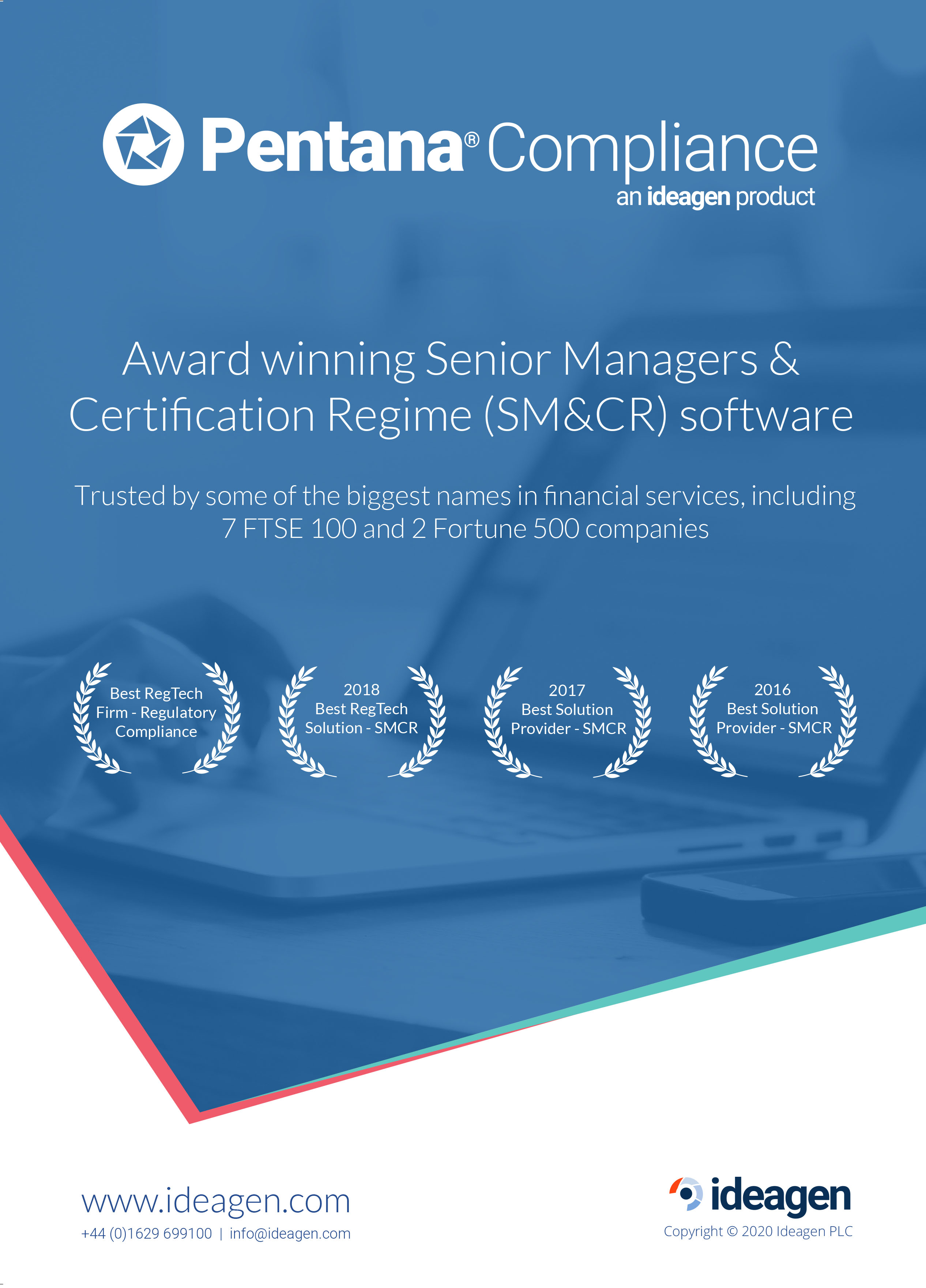How financial services firms can use technology to bolster operational resilience in the age of Covid-19. In this article we look at the rise of Regtech
As we approach the final quarter of 2020, many people will be thinking about how to protect themselves and their businesses in a future that looks as uncertain as any we have ever experienced. Over the past six months the United Kingdom has felt the full effects of what a global pandemic can do to a country – socially, politically, and economically. In the financial services industry, contingency plans have been severely tested as firms have struggled to prevent further disruption to their operations; looking at ways to adapt to the crisis, respond to its effects, and recover and learn from the fallout that has caused global financial instability and intricate regulatory challenges. At Ideagen, we have been speaking with our customers about their response to COVID-19 to seek insights about the actions they have taken as risk management and corporate governance professionals, and learn how they are using software to bolster resilience in this unprecedented period. What we have learned is that the automation of data collection and interpretation has been paramount in maintaining operational resilience – and this trend is only going to continue as we enter a post-COVID-19 world.
Financial firms are under a great deal of pressure from regulators. Even before COVID-19, maintaining ongoing regulatory activity for financial services firms was a logistical nightmare. From 2008 to 2018, financial organisations globally had to respond to an average of 220 daily alerts from roughly 1,000 regulators around the world (1) The impact of the pandemic has only served to exacerbate this number even further. This past March – the month the UK went into lockdown – there were over 1,300 regulatory changes and rules updates related to COVID-19 alone (2). The increased burden of COVID-19 has affected the operational resilience of banks according to the European Banking Authority (EBA), who in June stated that “the handling of large volumes of applications for debt moratoria and guaranteed loans, and the insufficient preparation of some offshore units to work remotely added some pressure on [banks’] operational capacities”(3).
This statement ought to be troubling to financial firms, particularly when considered alongside regimes such as SM&CR, which gives the FCA licence to impose personal fines and jail time for failures in operational resilience
This statement ought to be troubling to financial firms, particularly when considered alongside regimes such as SM&CR, which gives the FCA licence to impose personal fines and jail time for failures in operational resilience. Despite an easing of the rules by some regulators, financial institutions cannot escape their regulatory obligations and must find ways to carry on as usual. This is particularly difficult during a time when most companies have their entire workforce working from home – an issue which has forced firms to make extensive changes to several areas of their operations, and some even taking steps to make this the new norm. The adoption of digital solutions such as Zoom have certainly stepped up to relieve some of the strain, but for organisations that have massive regulatory obligations such as banking and financial services firms, the adoption of RegTech is of vital importance. The pace at which the landscape is changing, the rising demand in high-quality data and the need to connect those data points for real-time business intelligence are all powerful motivators for implementing a RegTech solution sooner rather than later.
The RegTech Revolution
According to the FCA, investment in RegTech more than doubled between 2017 and 2018, and estimates predict that the global market will be worth $55bn by 2025, with the highest number of RegTech firms operating in the UK (4). These reports came out when COVID-19 was barely a minor footnote in news segments, so these figures may very well increase. Nevertheless, the idea that technology can be harnessed to ease the burden of regulatory obligations in financial services is hardly a new one. Thomson Reuters’ 2017 report ‘Fintech, RegTech and the role of Compliance’ states that 75 percent of financial services firms reported a positive view of RegTech innovation and digital disruption. It is also clear that firms are taking decisive steps towards digitalising their compliance management functions using RegTech, with the number of financial services organisations who reported having already implemented a RegTech solution almost doubling in 2017 to 30 percent (17 percent in 2016).
The potential of RegTech to reduce costs, improve efficiencies, expand reporting, and build the effectiveness of compliance programmes has motivated many firms to invest more into these technologies, despite having to make cuts in other areas due to COVID-19-related difficulties. Many of the problems created thus far by COVID-19 have been significantly mitigated by tech: remote working, furloughing, new cyber-threats – all have been managed with appropriate systems and controls by firms that have integrated technology as part of their compliance programme. However, it is not enough to try and patch these problems with temporary solutions; it is important that any RegTech implementation is considered as a permanent, value-add initiative.
Ideagen’s vision is to be the world’s leading software company that helps to solve complex quality, risk, audit and compliance problems in highly regulated industries (5) Our latest foray into the world of RegTech saw Ideagen acquire Redland Business Solutions, and subsequently release our Individual Accountability and Competency software application, Pentana Compliance, in May. Pentana Compliance helps financial services firms meet regulatory requirements, raise standards and boost productivity while protecting them and their managers against the risks of non-compliance, which provides a great deal of assurance during this unstable and uncertain time. Furthermore, the system is a SaaS product built for the cloud, which provides a myriad of benefits such as: being more up-to-date, being flexible to changing demand whilst maintaining performance, supporting governance, saving money and providing high security standards – all of which are vital to achieving operational resilience.
For compliance functions in financial services, embracing change and technological developments is vitally important to keep up with the pace and scale of change that is seen in the industry. By implementing robust, innovative RegTech solutions, firms can provide their senior management and board members a far greater deal of assurance that their businesses operations will remain resilient, especially in times of crises. RegTech allows agility, adaptiveness, and responsiveness to become a core part of everything you do.
(1)2020 State of the GRC Market: GRC 2020
(2) https://www.corlytics.com/news-releases/out-of-the-window-covid-19-prompts-unexpected-regulatory-change-for-2020-compliance-risk-management-workplans/
(3) https://a-teaminsight.com/briefs/covid-19-is-impacting-banks-operational-resilience-warns-eba/?brand=tti
(4) https://www.fca.org.uk/insight/regtech-watershed-moment
(5) https://www.ideagen.com/company/objectives





